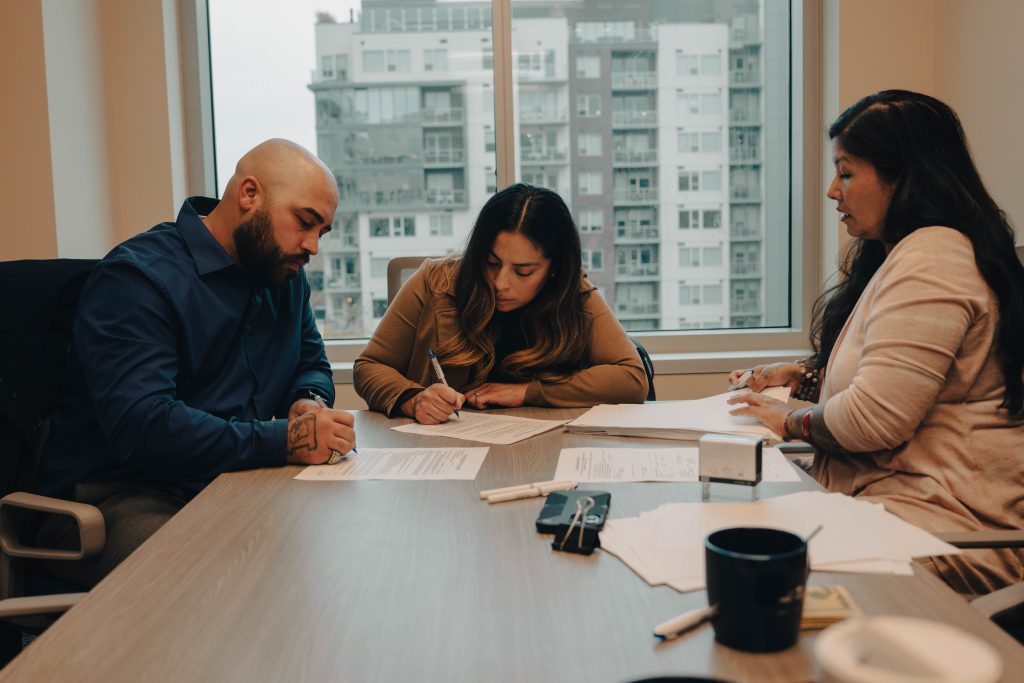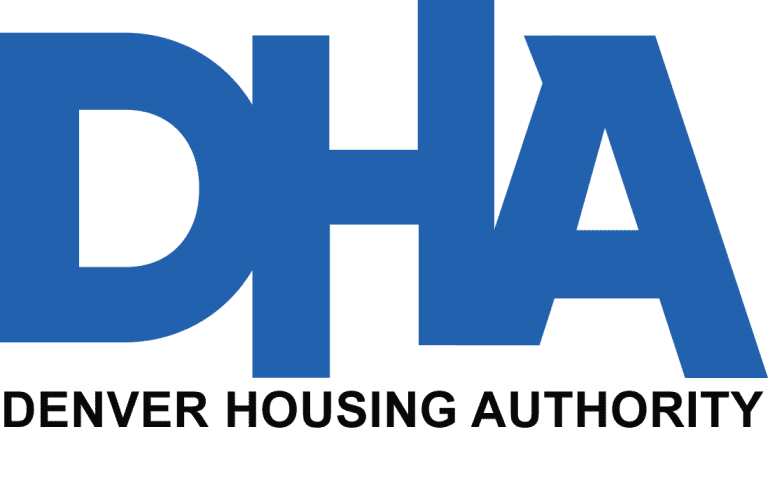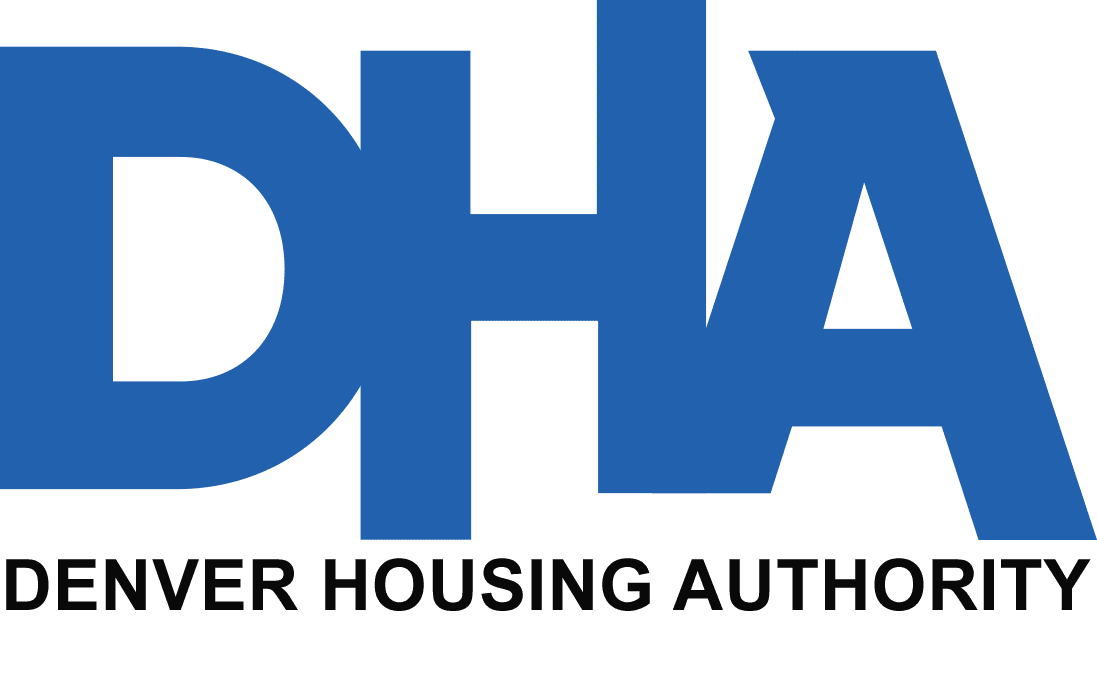Renee Vasquez had a hard time imagining what it would be like to leave Westwood Homes, the West Denver public housing complex, where she had lived for many years. When she moved in with her baby daughter in 2008, she was a single mom and insecurely housed, bouncing from her aunt’s to friends’ to a voucher-paid motel. The news that the Denver Housing Authority (DHA) had accepted her application for public housing felt like a lifeline, but she still dreamed of owning her own home.
Vasquez realized that dream on Nov. 1, 2021, when she closed on a five-bedroom house close to her old home in Westwood, after spending five years in DHA’s Homeownership and Family Self-Sufficiency (FSS) programs.
From subsidized housing to homeownership
That the journey to homeownership is longer for some isn’t surprising, given Denver’s skyrocketing home prices. But for first-time, low-income buyers, barriers like cost, down payments, and financing not to mention the anxiety of leaving a secure housing situation like Vasquez had at Westwood Homes, can make homeownership seem like shooting for the moon.
Having walked the line between being housed and not, Vasquez relished the peace of mind her long-term home at Westwood offered. “My whole thing being in DHA was a security thing,” she explained. “I never wanted to leave, because I knew I could stay in housing even if I lost my job. I didn’t trust enough to leave it. I just wasn’t ready.”
The hard numbers
The barriers for aspiring homebuyers in Denver across all income levels are real. According to the Denver Metro Association of Realtors in December 2021, the median single-family home sales price was $575,000, a number that eliminates many buyers from the market.
To put this in perspective for DHA residents: Annual income for 97 percent of DHA households is less than $40,000 a year, 78% bring in less than $20,000, and about half of DHA households make less than $10,000 a year. In a city like Denver, where the Annual Median Income for couples outstrips $83,000, how can a family living at 30 percent of AMI — that is $22,050 annual earnings for singles or $25,200 for a household of two — hope to buy a home?
The answer is they can’t, Nicolosi said. People with low incomes, who want to buy a home, must increase their earnings and improve their financial health to lay the groundwork for homeownership, which Nicolosi said, offers a possible gateway out of poverty. “Some of our homebuyers are still low-income,” she explains, even after becoming homeowners. “But they might have equity. They also have more stability, and their kids tend to do better in school.”
Research bears this out. According to a study in the Journal of Urban Economics, children of homeowners are more likely to remain in school until age 17 than offspring of non-homeowners, especially if they’re low-income, and they are also less likely to become teenaged parents. A report by the National Association for Realtors, indicates that children of homeowners have better math and reading scores, whereas a study published in the International Journal of Environmental Research and Public Health showed that homeownership generally correlated with positive health outcomes.
Becoming a homeowner through these programs takes time. For DHA residents like Vasquez, who participate in the housing authority’s Homeownership and FSS programs, buying a home requires a long-term commitment, usually about five-years. “It’s an American dream that many people think is not for them. They often think this is something they don’t think they can do. We show them they can,” Nicolosi said. “I tell them, it’s hard and will take a long time. But five years will come and go whether you do this or not. Do you want to be a homeowner in five years?”
The combined Homeownership and FSS programs are like a financial literacy and real-estate boot camp with monetary benefits. Participants work with FSS coordinators who provide case management, referrals, job readiness training, and financial fitness education. DHA tenants pay about one-third of their income in rent. So as DHA FSS residents raise their incomes, their rents also rise. HUD helps encourage savings by banking rent increases from growing work incomes into escrow accounts. When DHA participants successfully complete the goals they establish in FSS, the money’s theirs, whether they buy a home or not.
In the homeownership program, participants receive money management counseling, get free credit reports, credit counseling, and financial benefits. Once someone graduates from the Homeownership Program to DHA’s Homebuyer’s Club — about one-year out from house shopping — they get more intensive real estate literacy training and peer support as well as help securing safe and affordable mortgages, which are limited to fixed-rate mortgages with competitive fees and requirements.
Some DHA participants finish early, others take longer, and some never buy a home. But even if participants don’t purchase homes, Nicolosi said, their circumstances improve. Several FSS participants have banked as much as $35,000 in their FSS escrow accounts. Many also boost their financial viability by increasing their earnings, reducing their debt, improving their credit, and learning how to make better financial decisions.
To say the program is simply hard belies the life-changing nature of it. Not only does it require hard spending edits, classes in financial and real estate literacy, but it can also require a career change to improve earnings. Welders become IT professionals. CNAs become LPNs. A Kmart employee becomes an office assistant. Participants reduce their debt, repair their credit, increase their income, attend community college, and even learn English, all with the support and encouragement of DHA staff.
During her five years in the program, Vasquez’s earnings went from about $26,000 a year as a Denver Health security guard, to about $60,000, working for Denver Health’s Immunization and Travel Clinic. She also boosted her credit score and reduced her debt.


“I didn’t have good credit at all,” Vasquez explained. “They told me what to pay off, and I started doing that with my tax refunds and paying things down. It took a while, but I learned how credit works and the classes helped so much.”
The clients in DHA’s program go to extreme lengths to achieve this goal. For an entire year one single-mom took her five kids to school, did her shopping, and went to work by bus after her car broke down, so as not to delay buying a house. Today, she’s a homeowner. Another woman who couldn’t speak English, learned the language, got her G.E.D., and bought a house. A couple who spent 20 years in subsidized housing, went through the program and bought a house. A mom whose son was failing school, bought a home, and her son suddenly started getting straight A’s, because he was so proud of her accomplishment.
In 25 years, more than 220 DHA low-income families have purchased homes with the help of DHA’s FSS and Homeownership programs — in most cases moving to better neighborhoods. Even in 2021, one of the most challenging housing markets in decades, seven DHA residents including Vasquez closed on homes. DHA, as a HUD-Approved Counseling agency also assisted an additional eight non-DHA individuals in becoming homeowners.
Making a house a home for the long-term
As any homeowner knows, closing day is only the beginning. The house Vasquez bought is a fixer-upper, and she and her fiancé have been busy removing old paneling, carpeting and a dated kitchen. Her fiancé, who works as a window glazier, has taught himself dry walling and other skills, and even built a kitchen island. Having only owned the home six weeks, the couple have remodeled the basement and Vasquez’s fiancé is busy working on the kitchen — building not just a place to cook but also home value, Vasquez said.
The FSS program is HUD-funded and exists nationwide, but DHA’s FSS program, under Nicolosi is unique in that it collaborates with the agency’s Homeownership program and offers financial coaching and a matching savings account of up to $1,500 for residents to use when they buy a house.
Nicolosi said their homebuyers have experienced few foreclosures, even during the 2008 housing crisis. The results of a study by a researcher at Wayne State University, showed that compared to public housing residents who bought homes on their own and those who participated in DHA’s homeownership program, not only did DHA homebuyers settle into income-diverse neighborhoods, but they also enjoyed better home appreciation and fewer foreclosures “suggesting that homebuyer education and counseling improves long-term sustainability of homeownership.”
“I think what we do here is replicable,” Nicolosi said about client successes. “But it can’t be just a job. We’re successful here because my team is led by the mission at DHA, and we buy in, and we get personal satisfaction from these successes.”
Vasquez found that the incremental steps she took over five years — and the changes she saw as a result — gave her the tools and confidence to take the big leap from public housing resident to homeowner. “I’ve made so many changes,” Vasquez explained of her odyssey from public housing resident to homeowner. “You grow a lot from that and that helps get you into that right mindset to make that commitment.”
Quick Facts
FSS has helped participants earn over $3 million in 19 years.
220+ DHA residents have become homeowners
During the exceptionally competitive housing market of 2021, 7 DHA residents purchased homes.
Renee Nicolosi is the long-time director of Resident and Community Services at the Denver Housing Authority.
Original article available on Medium at the link below:
https://medium.com/@nakeidknits/the-long-way-home-7fe7500468ae

